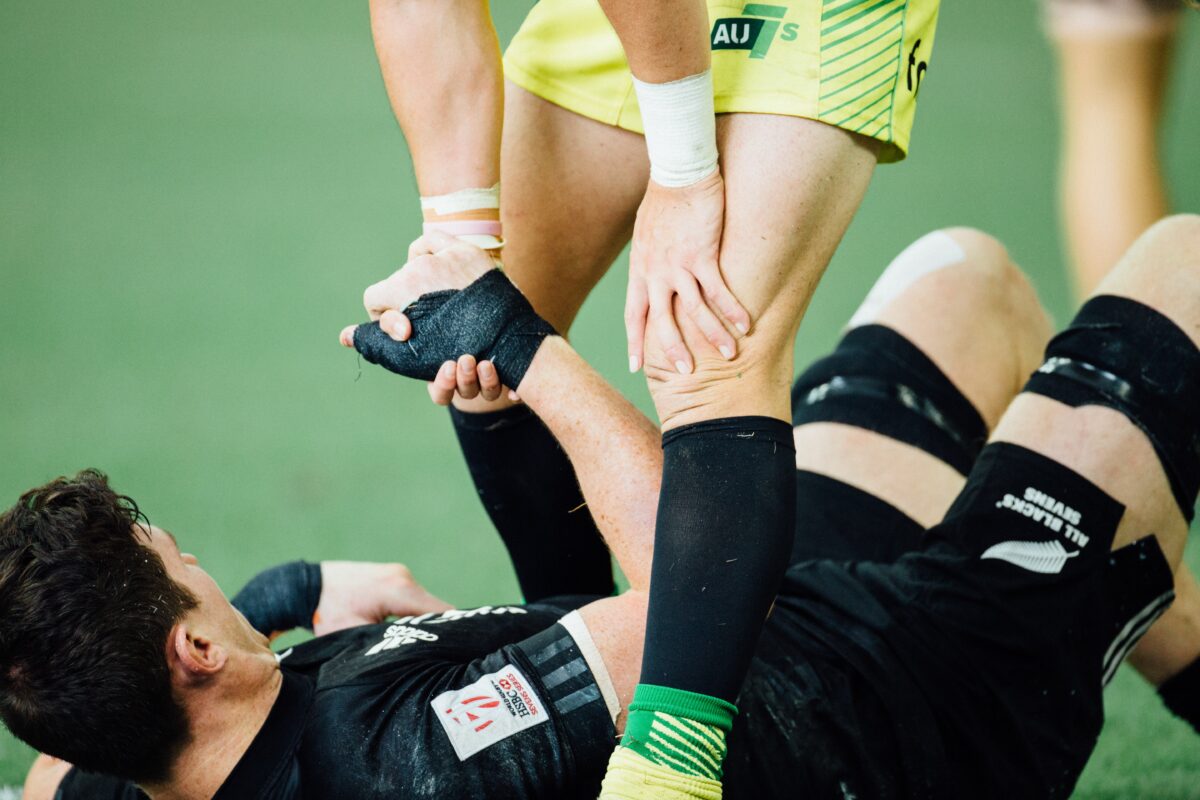We don’t understand how much we rely on our knees until something goes wrong. Knee pain is a very common complaint that affects people of all ages and fitness levels. Unfortunately, it can indicate a serious problem that will require extensive rehabilitation. At the first sign of knee pain, you should consider visiting a sports physiotherapist in Melbourne.
Here at Freedom Sports Medicine, our physios have experience treating both acute and chronic knee conditions. We will work with you to determine the real root cause of your problem and tailor a rehabilitation plan that takes into account your physical activity preferences and goals.
The knee explained
The knee is one of the largest joints in the body. It’s very complex and is made up of bones, tendons, ligaments, and cartilage. It connects our thigh bone (femur) to our shin bone (tibia) via the patella, which absorbs a tremendous amount of force daily. The knee is what is known as a hinge joint, meaning it allows us to flex and extend the leg.
Tendons connect the knee bones to knee muscles while ligaments provide additional stability between the femur and tibia. The role of cartilage is to act as a shock absorber, cushioning bones (particularly the patella) and enabling smooth overall motion.
The entire knee joint is surrounded by a membrane bag filled with synovial fluid, which acts as a lubricant. There are also a number of bursa found in the knee, which are fluid-filled sacs designed to reduce friction and inflammation.
Common knee complaints
Knee pain can affect professional and amateur athletes alike. In fact, even those who engage in little to no physical activity are at risk of developing knee problems. There are certain factors that will increase the likelihood of you developing a knee issue, including age, engagement with repetitive movements (such as running,) pre-existing health conditions (such as arthritis,) and weight — the knee is responsible for absorbing the force we create with every step. The heavier you are, the more pressure you will be putting on the joint.
Common knee conditions include:
Sprained/torn ligaments
You’ve probably heard of elite sports stars being diagnosed with a “torn ACL” or “sprained PCL.” These are quite significant and painful issues that can take many months to recover from. Ligaments typically tear when you change direction suddenly, a type of movement that is often associated with ball sports like football and basketball.
Immediately after tearing your ACL, you might hear a “pop” in your knee, followed by intense pain.
Torn cartilage
Cartilage acts as a shock absorber in the knee, and tearing your knee cartilage (also known as a torn meniscus) is usually quite a painful process. You may have difficulty fully straightening your knee or feel like the joint is locked into place.
Similarly to an ACL or PCL injury, a torn meniscus is caused by a sudden change in direction.
Tendonitis
Tendonitis can occur anywhere in the body and is caused by an inflamed tendon. Patella tendonitis is characterised by pain between your knee and tibia, usually during periods of high-intensity activity. However, over time, you may find simple everyday activities like climbing the stairs also trigger symptoms.
Bursitis
Bursa are small, fluid filled sacs that are found all throughout the body, including the knee. They act to cushion our joints. However, they can become inflamed through injury and overuse. If left untreated, bursitis can become a chronic condition.
Arthritis
Arthritis is an umbrella term for a number of different diseases that involve joint swelling and tenderness. Osteoarthritis, rheumatoid arthritis, and psoriatic arthritis can all affect the knee, causing pain, stiffness, and loss of mobility.
Dislocation
Knee dislocation occurs when the three bones that make up your knee joint (the femur, tibia, and patella) become misaligned. This can happen through acute injury or due to a congenital disorder. Dislocation is very serious and extremely painful.
Treating and protecting the knee
Given the complex nature of the knee, treating knee concerns is usually quite a comprehensive process and can involve anything from anti-inflammatory medication to surgery.
How a sports physiotherapist in Melbourne chooses to treat your condition will often depend on the root cause. If, for example, you have been diagnosed with tendonitis, your physio might recommend that you engage in more diverse forms of physical activity, like bike riding or swimming. This strategy will reduce the amount of pressure placed on tendons found in the knee. Other strategies to protect your knee health may include technique correction or strength and conditioning exercises.
At the first sign of knee pain, contact Freedom Sports Medicine. Our trained and experienced sports physiotherapists in Melbourne will work with you to ease pain and help you regain mobility.
